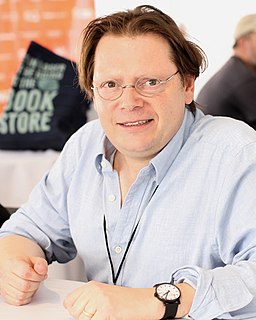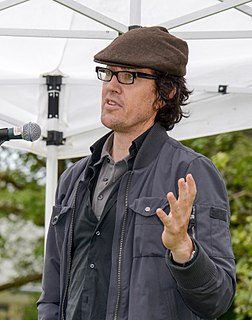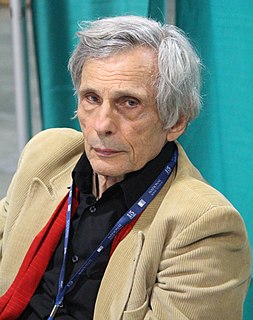A Quote by Jay Parini
I had a year off, so my wife and I were heading to Italy to study Italian. We found a little house in a village called Atrani. I discovered that Gore Vidal lived right above us in a big house, so I sent him a note.
Related Quotes
When I was a little kid, I wrote this play about all these characters living in a haunted house. There was a witch who lived there, and a mummy. When they were all hassling him, this guy who bought the house - I can't believe I remember this - he said to them, 'Who's paying the mortgage on this haunted house?' I thought that was really funny.
In 1492, the natives discovered they were indians, discovered they lived in America, discovered they were naked, discovered that the Sin existed, discovered they owed allegiance to a King and Kingdom from another world and a God from another sky, and that this God had invented the guilty and the dress, and had sent to be burnt alive who worships the Sun the Moon the Earth and the Rain that wets it.
You catch any white man off guard in here right now, you catch him off guard and ask him what he is, he doesn't say he's an American. He either tells you he's Irish, or he's Italian, or he's German, if you catch him off guard and he doesn't know what you're up to. And even though he was born here, he'll tell you he's Italian. Well, if he's Italian, you and I are African even though we were born here.
We found letters at the house we bought from a sailor to his wife who lived in the house. He went down to the Caribbean on this trader vessel, bringing down salted fish. There would be handwritten letters, but also telegrams, saying which ports he was in. And he'd be gone for three months. That was just the way it is.
'Empire of Self' is a loving portrait of a very difficult man. Jay Parini, himself a gifted novelist, poet and biographer, has gone very deep into the 'black energy' of Gore Vidal's relentless narcissism and megalomania. Parini envisions an epic battle between Vidal's angelic and demonic sides, yet there's very little of the angel in Vidal.
Communication Was never big in my house. We sat together over dinner, but the only sound you'd hear was crunching and chewing and the little ones asking for more, please. We lived, all boxed up in invisible containers. We hardly knew the people we called sister or father. Jackie and I were the exceptions to that rule.






































